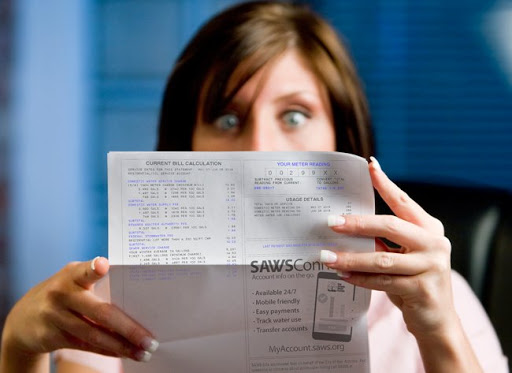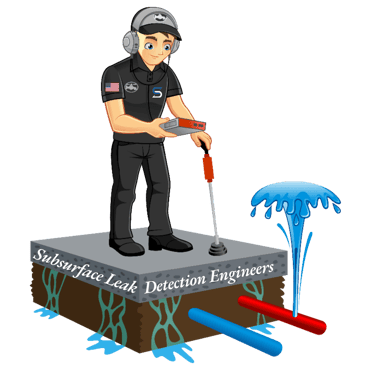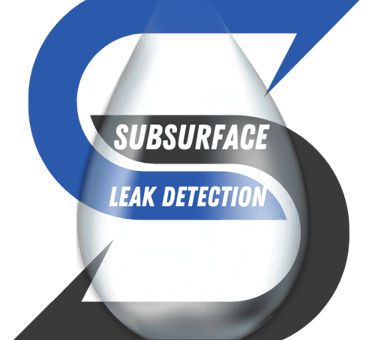HOW TO DETECT A LEAK IN YOUR HOME -WATER LEAK DETECTION
Checking for a leak!


Water Leak Detection: Expert Advice for Homeowners
Water is a precious resource that we rely on daily, but when it escapes from pipes or appliances, it can quickly become a costly and damaging problem. Plumbing leaks are surprisingly common, often going unnoticed until they cause significant damage. Knowing how to detect and locate these sneaky leaks is essential for every homeowner. This article offers expert advice on identifying water leaks and preventing water wastage, ultimately saving you money and protecting your home’s integrity.
The Importance of Leak Detection
Plumbing leaks can occur both indoors and outdoors, leading to structural damage, higher water bills, and environmental concerns. To avoid these issues, it's essential to detect and address leaks promptly. Even small, seemingly insignificant leaks can waste large amounts of water over time. The Environmental Protection Agency estimates that 10% of homes in the U.S. have leaks that waste 90 gallons of water per day.
Monitoring Your Water Bill
One way to identify potential leaks is by monitoring your monthly water bill. Your water usage should remain fairly consistent, except for seasonal activities like watering the garden. A sudden spike in your water bill, especially during times of normal consumption, can indicate a hidden leak. Even minor leaks, like a dripping faucet or a running toilet, can waste up to 10,000 gallons of water per year. Regularly checking your water bill can help you catch these issues early. Many water utilities offer leak adjustment programs to assist property owners with high bills due to water leaks. Here are a few:
Colorado Springs Utilities Adjustment Program
Denver Water Leak Adjustment
Castle Rock Water Leak Adjustment
Aurora Leak Adjustment
Using the Water Meter
For a definitive answer on active leaks, monitoring your water meter is an excellent method. To use this approach:
Ensure no water is running in your home.
Check the water meter and record the numbers displayed.
Wait an hour without using any water.
Check the meter again; if the numbers have changed, you likely have a leak indoors.
To determine if the leak is inside your home or in the main supply line, you can follow these additional steps. First, turn off the shut-off valve on your home’s main water supply pipe. Then, check the meter again; if the numbers remain unchanged, the leak is inside your home. If the numbers change, the leak is likely in the buried water line leading to your house.
Examining Your Yard
A noticeable sign of an outdoor water leak is patches of greener grass or puddles in your yard. Excessively lush and fast-growing grass may indicate a buried water line leak, especially with irrigation systems or shallow service lines.
Investigating Appliances and Fixtures
If the water meter test indicates an indoor leak, inspect the areas around sinks, tubs, toilets, showers, and appliances like water heaters, dishwashers, and washing machines. Look for signs of moisture, puddles, or water damage under or around these fixtures. Early detection can prevent extensive damage.
Staying Alert to Leaking Clues
Some leaks are not immediately obvious and may trickle slowly from concealed pipe fittings within walls. Keep an eye out for unusual signs, such as damp spots, peeling paint, or mold growth, which may indicate hidden leaks. Regularly inspecting your plumbing can help you catch these sneaky culprits.
Water leaks, whether indoors or outdoors, can lead to significant damage and water wastage. Learning to detect these hidden leaks is essential for protecting your home and finances. By monitoring your water bill, using your water meter, examining your yard, investigating appliances, and staying alert to clues, you can identify and address leaks promptly. If you suspect a leak, take action without delay to prevent further damage and save water.
For professional leak detection services in the Colorado Springs and Denver metro area, contact Subsurface Leak Detection at Colorado Springs Leak Detection: (719) 749-6850 or Denver Leak Detection: (303) 520-0778. Their experts can help you efficiently and cost-effectively locate and resolve any plumbing leaks.


